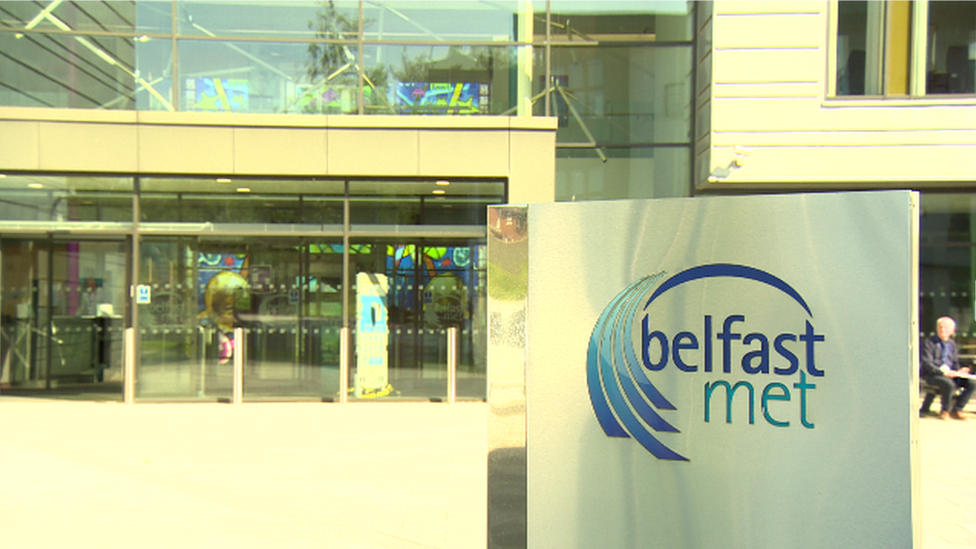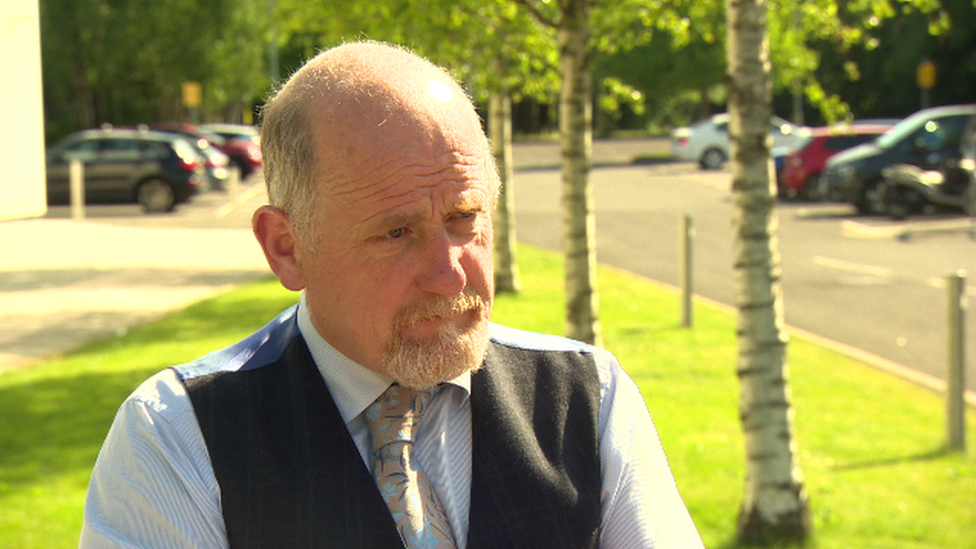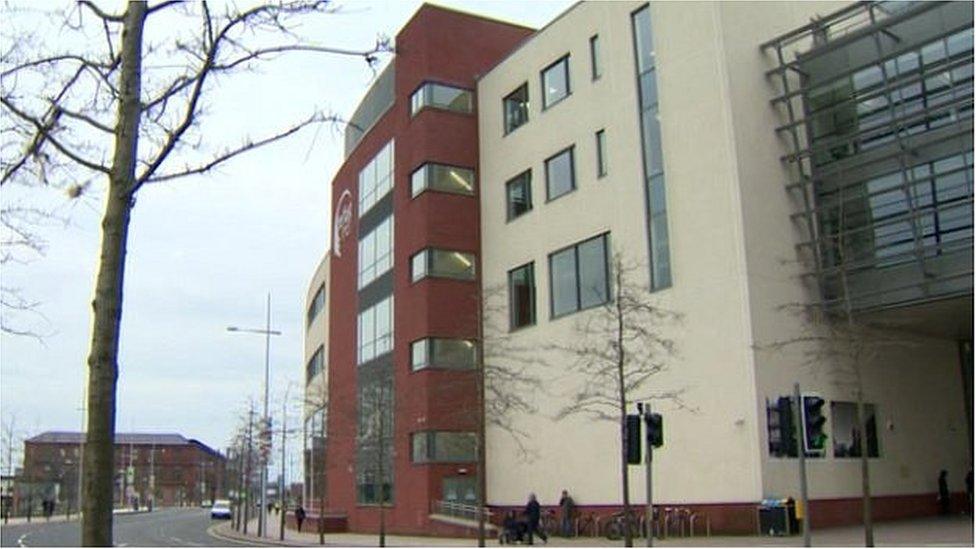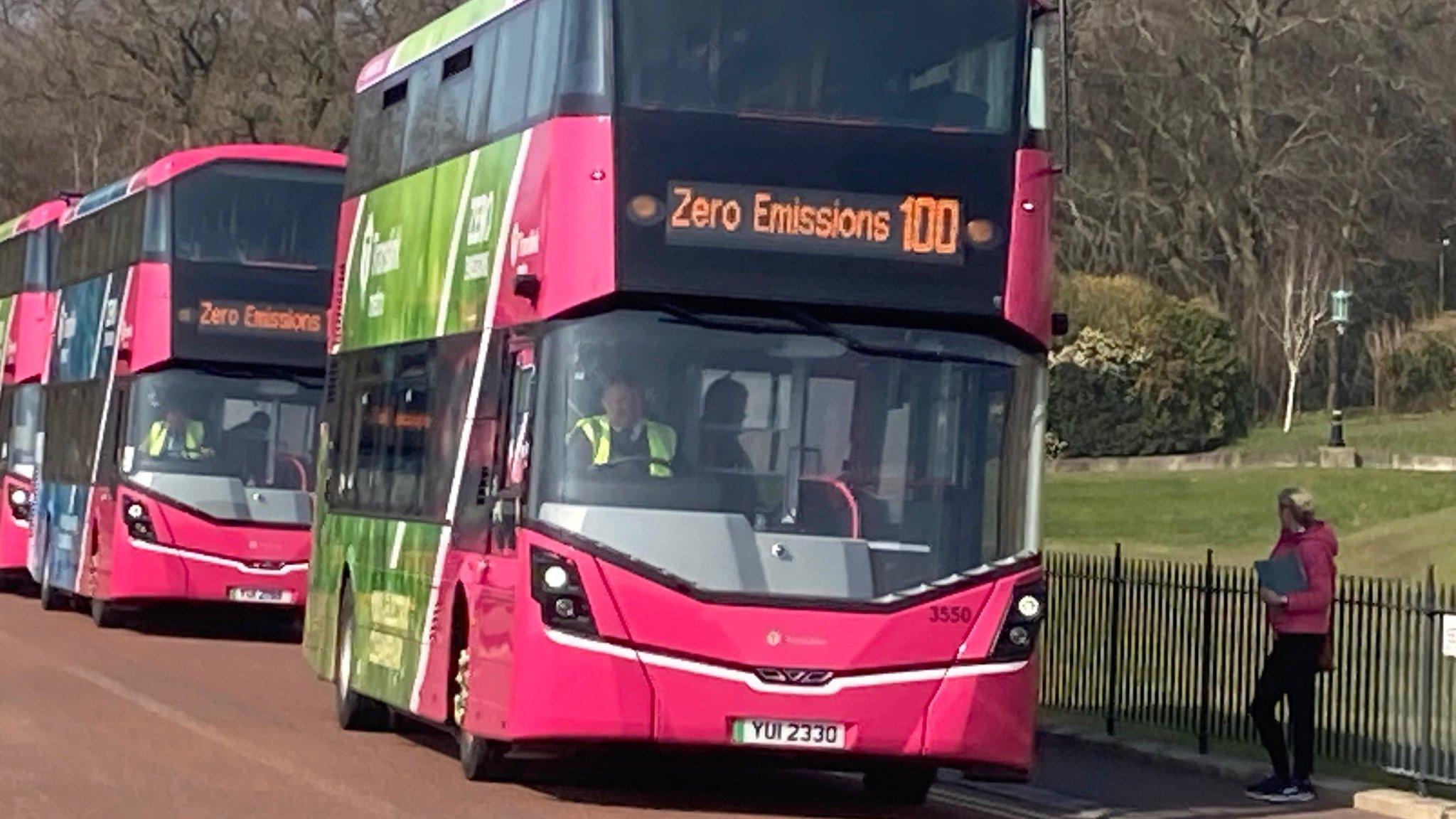Hydrogen buses: Europe-wide green bus project to end in Belfast
- Published
- comments

Belfast Met led GenComm is using the E3 campus in west Belfast as its headquarters
A Europe-wide project exploring the possibilities of using hydrogen for energy is coming to an end in west Belfast.
The GenComm programme looked at the possibilities of using green hydrogen to decarbonise and turn northwest Europe into an economic world player.
The Belfast Met-led GenComm has been using the E3 campus in west Belfast as its headquarters.
Interreg North West Europe funded the project from 2017.
It was instrumental in establishing three European GenComm Hydrogen Hub pilot plants, creating hydrogen by solar, wind and biomass methods.
It produced the first hydrogen supply chain on the island of Ireland, powering hydrogen buses in Belfast.
GenComm co-ordinator Paul McCormack said Northern Ireland was in a prime position to take full advantage of the opportunities offered by green hydrogen.

GenComm co-ordinator Paul McCormack said Northern Ireland was in a prime position to take advantage of the opportunities offered by green hydrogen
'Sustainable clean energy'
"The work of Belfast Met and our partners has ensured that Northern Ireland is ahead of the energy curve, working with the Department of the Economy, the Department for Infrastructure, making sure that Northern Ireland is well-positioned to take full benefit of the new green economy - economic benefit but also the environmental benefit of reducing its CO2 footprint, giving that green boost the economy requires."
The chief executive of Belfast Met, Louise Warde Hunter. said: "The pioneering GenComm project has proved to be a key catalyst driving the clean hydrogen energy transition.
"Hydrogen is one of the clean energy solutions that will decarbonize Europe's industry, transport, buildings, and energy sectors, demonstrated by the ambitious targets for production of hydrogen set by the European Green Deal and REPowerEU.
"Skills will be key in translating the policy ambitions into reality. Belfast Met is delivering the skills mechanisms, modules and mobility that will provide the foundations for a sustainable clean energy economy."
Related topics
- Published1 August 2017

- Published23 March 2022
